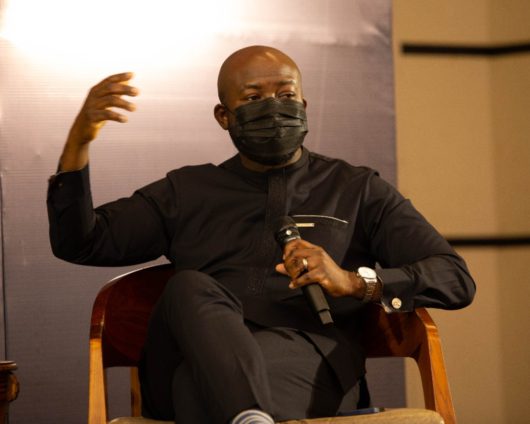Former Chief Executive Officer of the Chamber of Bulk Oil Distributors, Senyo Hosi, says the government’s decision to withdraw foreign exchange support for rice imports is not a well thought through policy.
According to him, while he realizes the goodwill that may have influenced the decision, the policy proposition is brash and does nothing to solve the problem it was intended to fix.
He noted that the government had failed to consult key stakeholders in the agricultural sector, particularly in the rice sector, to come out with a more robust and sustainable policy proposition for the 2023 budget.
This he says is what has led to the government formulating policy propositions that are mere rhetoric and have no substance to them.
Speaking on JoyNews’ PM Express, he explained that the withdrawal of FX support for rice importers would hit Ghanaians more than improve local production.
With Ghana’s local rice production at 43% according to Ministry of Agriculture records, Senyo Hosi notes that local producers will not be able to fill in the 57% gap that will be created if importers are unable to bring in rice.
This he says is because the government in their policy proposition failed to provide any tangible support system for rice farmers to locally produce to fill the expected gap.
“So you have this 57% that’s outstanding, that’s about a million tonnes of milled rice. Who is going to fill the gap? What policy structure do you have in place for us to fill the gap? Because for us to fill the gap, we need to cultivate four hundred and fifty something hectares. So if you’re not going to do that it means that local production will not fill the gap, so what happens? We still will import.
“But we’re not going to import with Bank of Ghana dollars, we’re going to look for other dollars meaning that the cost of the dollar for those imports will go up. Who is going to make the money? It is the FX traders,” he said.
According to him, a more prudent measure to improve local production of rice was to introduce a levy which would be invested into the local rice industry to grow it.
“What you could have done is you could have rather introduced a rice development levy or tax, whatever name you want to give it, then you use that money to help support industry grow that four hundred and fifty something hectares required to be able to knock out imports over time. But what have you done? What you’ve done right now, local production is not there.
“You don’t have proper policy to really support or fund us to expand capacity. So you’re going to make money for FX traders who will be sitting down and looking at commodity swaps for rice and other things across the world. I don’t see the sense yesterday, and I don’t see the sense tomorrow over that policy.
“I see a good heart wanting to do a good thing but hasn’t thought through the thing he wants to do. And sadly, he’s not consulting. That policy is off,” he said.
Latest Stories
-
DAMC, Free Food Company, to distribute 10,000 packs of food to street kids
1 hour -
Kwame Boafo Akuffo: Court ruling on re-collation flawed
1 hour -
Samuel Yaw Adusei: The strategist behind NDC’s electoral security in Ashanti region
1 hour -
I’m confident posterity will judge my performance well – Akufo-Addo
2 hours -
Syria’s minorities seek security as country charts new future
2 hours -
Prof. Nana Aba Appiah Amfo re-appointed as Vice-Chancellor of the University of Ghana
2 hours -
German police probe market attack security and warnings
2 hours -
Grief and anger in Magdeburg after Christmas market attack
2 hours -
Baltasar Coin becomes first Ghanaian meme coin to hit DEX Screener at $100K market cap
3 hours -
EC blames re-collation of disputed results on widespread lawlessness by party supporters
4 hours -
Top 20 Ghanaian songs released in 2024
4 hours -
Beating Messi’s Inter Miami to MLS Cup feels amazing – Joseph Paintsil
4 hours -
NDC administration will reverse all ‘last-minute’ gov’t employee promotions – Asiedu Nketiah
4 hours -
Kudus sights ‘authority and kingship’ for elephant stool celebration
4 hours -
We’ll embrace cutting-edge technologies to address emerging healthcare needs – Prof. Antwi-Kusi
5 hours

